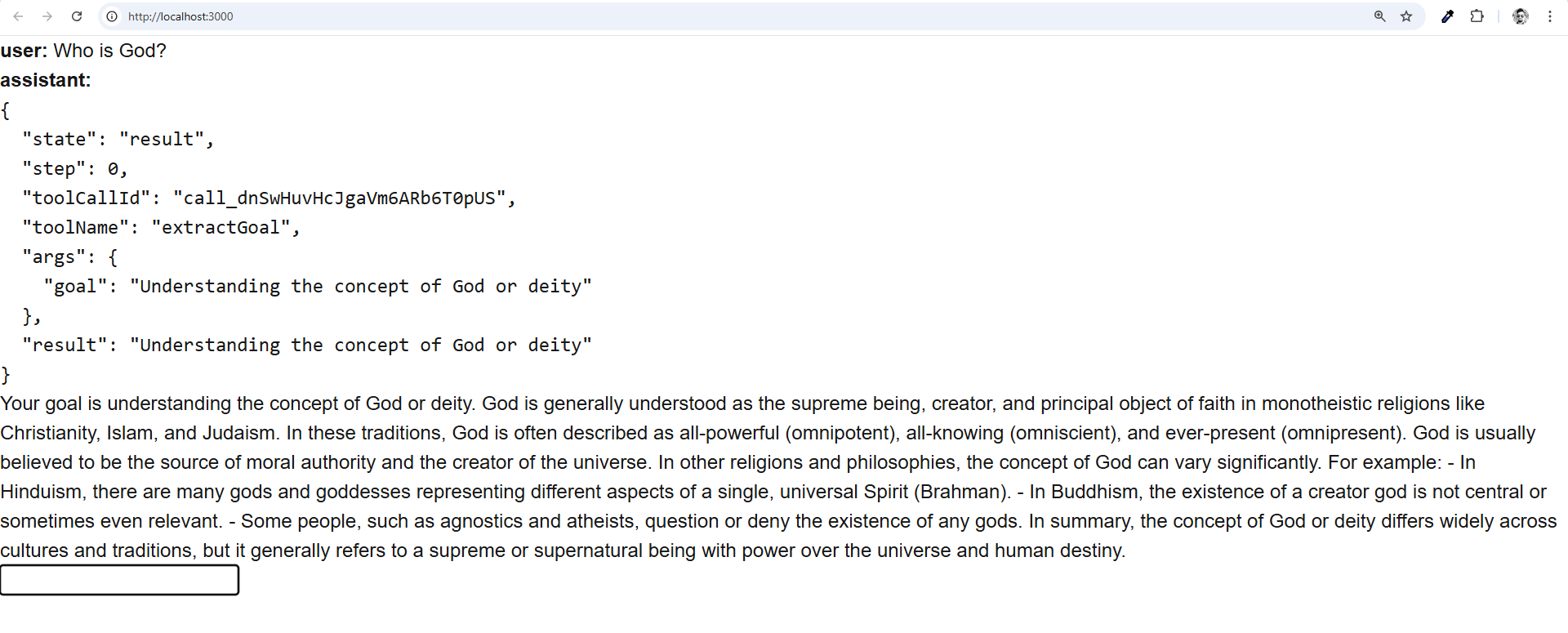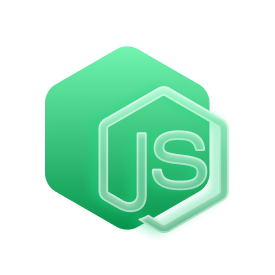// npm i @ai-sdk/openai@^1 ai@^4 zod
import { createOpenAI } from '@ai-sdk/openai';
import { createDataStreamResponse, streamText, tool, convertToCoreMessages } from 'ai';
import { z } from 'zod';
const my_model = createOpenAI({
baseURL: process.env.BASE_URL!,
apiKey: process.env.LIARA_API_KEY!,
});
export async function POST(req: Request) {
const { messages } = await req.json();
return createDataStreamResponse({
execute: async dataStream => {
// step 1 example: forced tool call
const result1 = streamText({
model: my_model('openai/gpt-4o-mini', { structuredOutputs: true }),
system: 'Extract the user goal from the conversation.',
messages,
toolChoice: 'required', // force the model to call a tool
tools: {
extractGoal: tool({
parameters: z.object({ goal: z.string() }),
execute: async ({ goal }) => goal, // no-op extract tool
}),
},
});
// forward the initial result to the client without the finish event:
result1.mergeIntoDataStream(dataStream, {
experimental_sendFinish: false, // omit the finish event
});
// note: you can use any programming construct here, e.g. if-else, loops, etc.
// workflow programming is normal programming with this approach.
// example: continue stream with forced tool call from previous step
const result2 = streamText({
// different system prompt, different model, no tools:
model: my_model('openai/gpt-4.1'),
system:
'You are a helpful assistant with a different system prompt. Repeat the extract user goal in your answer.',
// continue the workflow stream with the messages from the previous step:
messages: [
...convertToCoreMessages(messages),
...(await result1.response).messages,
],
});
// forward the 2nd result to the client (incl. the finish event):
result2.mergeIntoDataStream(dataStream, {
experimental_sendStart: false, // omit the start event
});
},
});
}




